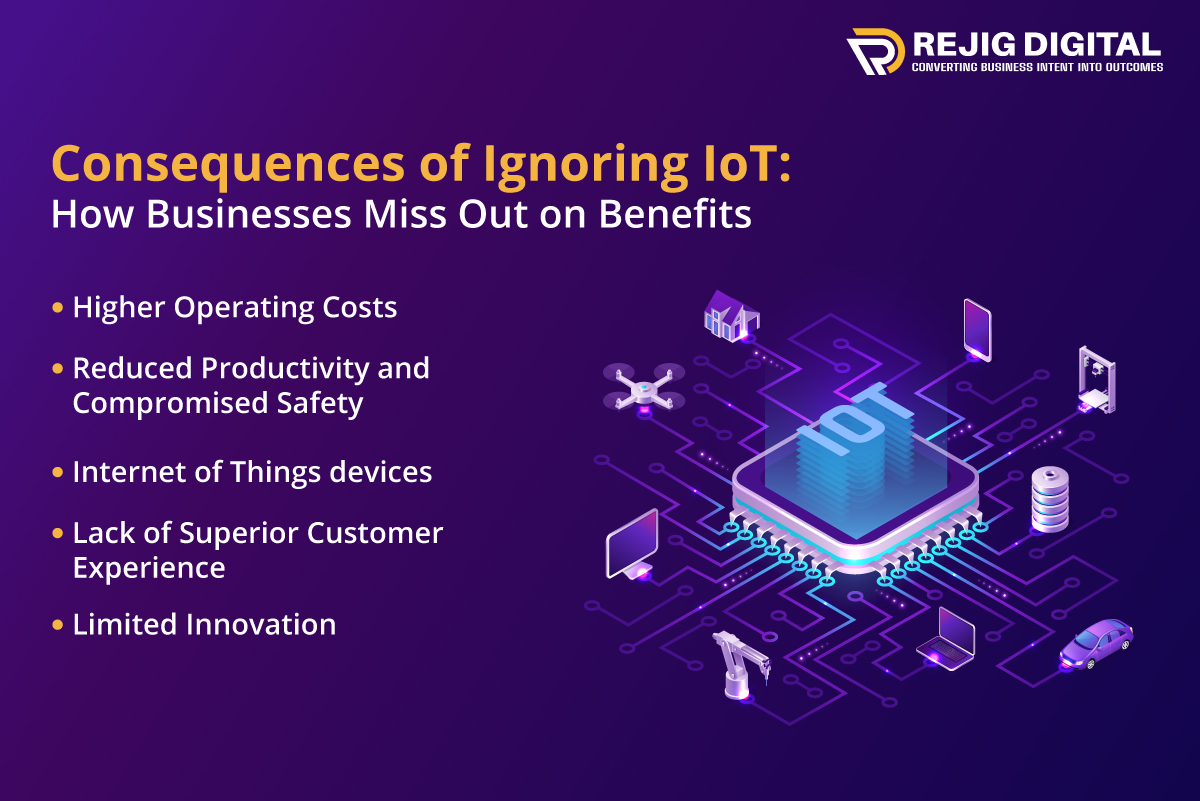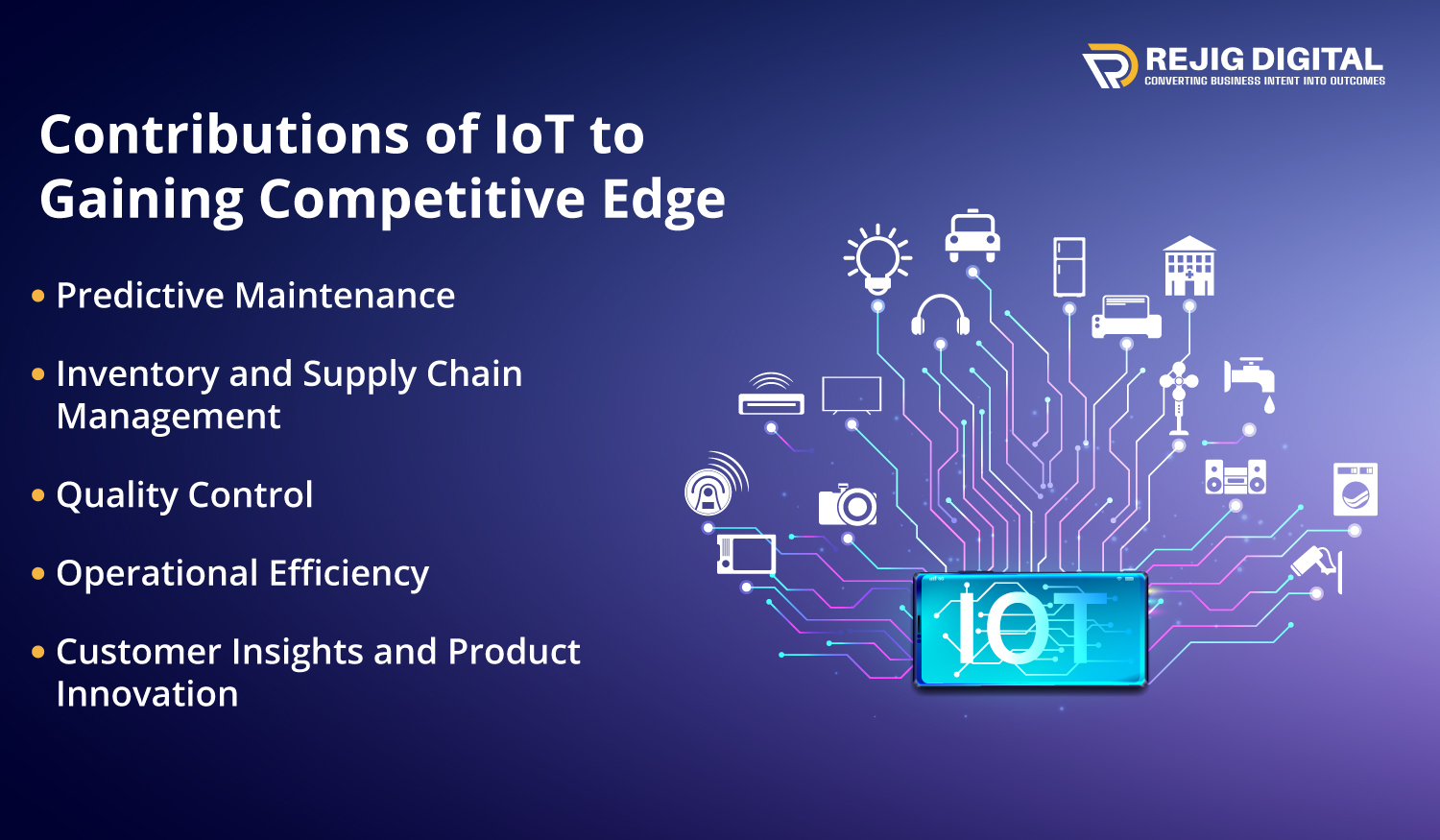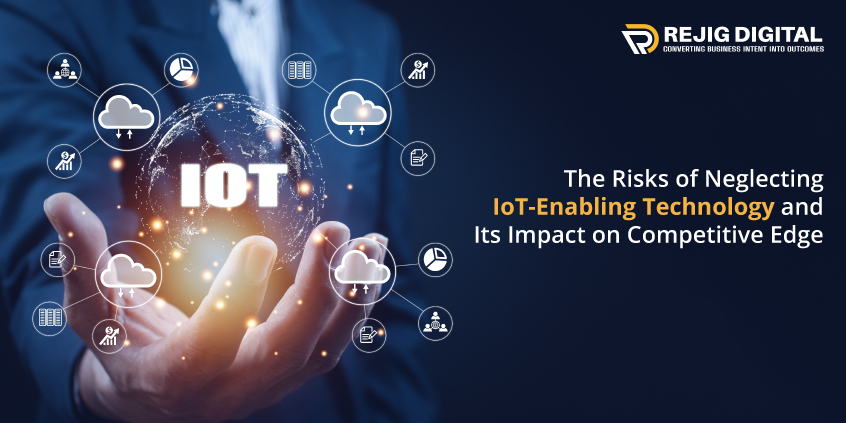An increasing number of companies recognise the potential benefits of leveraging the Internet of Things (IoT) to streamline operations, enhance safety, and increase productivity. Yet, many are hesitant to adopt this technology due to concerns over implementation expenses and cybersecurity risks associated with IoT networks. As a result, a significant number of business leaders are refraining from embracing IoT-enabling technology despite its potential advantages.
Blaming businesses may also not be right as whenever a new technology emerges, we are surrounded by them quickly and in this case, it’s IoT (Internet of Things).
IoT is much more than just a buzzword. Yes, there are many challenges that IoT comes up with such as security concerns, and vulnerabilities to hackers to name a few. However, even with such challenges, IoT technology has the potential to explore many possibilities for businesses at the current time.
Consequences of Ignoring IoT: How Businesses Miss Out on Benefits

Ignoring IoT can limit the ability of businesses to innovate, reduce efficiency, and negatively impact customer satisfaction, ultimately affecting its competitiveness in the market.
Let’s dive in to know the opportunities businesses can be lost by failing to integrate IoT-enabling technology into their ecosystem.
Higher Operating Costs
Although there may be initial expenses involved in developing and implementing IoT-powered solutions, the long-term benefits are likely to be cost-effective for businesses. The real-time information provided by IoT can simplify the optimisation of workflows which leads to lower operating costs in the long run.
Smart devices are capable of delivering crucial data about various parameters of operations. Leveraging such information allows companies to take various proactive measures such as scheduling preventive maintenance to prevent system downtimes. As a result, IoT connected ecosystem can prevent the extra cost of equipment maintenance and production loss due to unscheduled stoppages. Therefore, not utilising IoT technology can lead to losing the opportunity to reduce operational costs.
Reduced Productivity and Compromised Safety
The lack of IoT technologies can impact productivity and safety negatively. Connected devices utilizing smart technologies enable remote asset monitoring solutions as well as management, and tracking of overall production line productivity. Hence, failure to leverage IoT-enabling technology can result in less productivity and missing the scope for improvement. Otherwise, businesses may continue to rely on outdated and manual processes, resulting in higher costs and lower efficiency.
The IoT technology has the potential to significantly enhance the safety of operating environments. As regulatory compliances become increasingly strict, automated tracking and safety enhancements for both workers and equipment become critical. Many businesses and industrial units are currently deploying IoT-based smart sensors which can ultimately protect staff from excessive physical stress and exposure to a toxic environment.
Internet of Things devices can pose security risks if not properly secured. Ignoring IoT means that businesses may leave themselves vulnerable to cyber attacks, which can damage their reputation and compromise customer data.
Lack of Superior Customer Experience
Overlooking IoT technologies means missing out on the opportunity to consistently provide superior customer experiences. IoT can enhance data tracking within an organisation, which is necessary to ensure superior customer experiences. Automated mechanisms to track changes in critical customer data, such as customer sentiment.
IoT enables businesses to collect valuable information on their products such as usage patterns and customer preferences. This data can be used to make necessary adjustments to product features and to create effective marketing strategies. Moreover, IoT solutions can also assist in prompt and precise resolving customer issues. By analysing the personal data of customers, businesses can enhance the customer experience by offering customised services. Without IoT, businesses may not be able to provide the level of service that customers expect, which can result in reduced customer satisfaction and loyalty.
Limited Innovation
With IoT, businesses can innovate and create new products and services that are more connected and responsive to customer needs. By ignoring IoT, businesses may struggle to keep up with new technologies and may find it difficult to differentiate themselves from competitors.
Understanding the Distinctions: IoT vs. Conventional Systems
The fundamental difference between IoT and traditional solutions is that IoT and connected assets also include cloud computation, i.e., the Internet. It means that access to the internet gives abundant knowledge from every connected device. Therefore, irrespective of its phone or laptop, or any other industry-specific device, all can be monitored and controlled by IoT, unlike conventional devices, which are limited to just one dedicated interface.
Another difference is IoT devices receive regular updates via the internet, which improves their functionality. On the contrary, traditional devices do not receive updates to enhance their functionality. Moreover, IoT-based equipment can automatically and cost-effectively collect large amounts of data, while data collection with conventional devices is typically expensive, tedious, and irregular.
While comparing IoT with traditional devices, it’s evident that IoT has unique characteristics. However, the true potential of IoT lies in its ability to scale, mainly owing to the network effects in the device and API ecosystem. The device ecosystem allows companies to collect and analyse data from all their IoT devices, thereby extracting valuable insights.
The API ecosystem in IoT refers to an IoT device’s capacity to connect with other internet-enabled machines and applications. API is an acronym for “application program interface,” which allows applications to exchange information through the Internet. For example, when someone sees nearby cars on their map on mobile; it is made possible through the API which is utilised by the service provider to generate that map.
Internet of Things devices can significantly enhance their capabilities through the API ecosystem, which is found in a “smart home” setup. For instance, an IoT video doorbell sends a photo of an individual approaching the front door to cloud-based facial recognition software. Upon recognising the homeowner’s face, the software can command the IoT door lock to unlock and allow entry.
Overall, the difference between IoT and conventional devices is significant. It represents a shift from a singular approach to a more extensive one that has the potential to contribute towards profitability.
Contributions of IoT to Gaining Competitive Edge

Predictive Maintenance
Collection of data across production lines can provide relevant assistance on when equipment needs service which saves manufacturers from untimely maintenance costs and downtime. It further adds to the higher profit margins. The constant flow of data helps in identifying issues before they occur throughout the entire production process.
Inventory and Supply Chain Management
IoT allows companies to optimise inventory with greater efficiency and visibility of the entire management process. IoT integrated with real-time GPS enables businesses to achieve insight into shipping times and potential delays. Tracing finished goods helps in speeding up the tracking for product recalls.
Quality Control
IoT-powered sensors can collect raw data abundantly across an entire facility, which enables businesses to have greater precision in assembly functions especially for the industries like aerospace and defence. As a result, big enterprises are able to adhere to stringent manufacturing standards.
Operational Efficiency
IoT enables business leaders to analyse internal performance with data-based insight. Furthermore, they can plan capacity, improve performance, decrease energy consumption, boost productivity and reduce costs per piece which are produced. Getting such valuable data also helps manufacturers to win contracts that need specific performance levels.
Customer Insights and Product Innovation
Customer care is transforming in this digital age. The data collection and analytic capabilities of IoT allow businesses to change and tweak existing product features according to customer preferences and demands. Thereafter, businesses get a competitive advantage by catering to the needs of target customers.
IoT technology makes it possible to prevent expensive product service recall if updates come from the wireless medium. Manufacturers can also adjust maintenance schedules for equipment based on their performance, which can lead to greater customer satisfaction in the long run.
The Ending Note
The IoT-enabling technology presents businesses with the possibility to achieve significant insights which help in optimising operations, enhancing products, and providing better customer experiences. Failing to leverage the potential of IoT could lead to missed opportunities for businesses and get them at a disadvantage as compared to their competitors who are utilising the technology.
Rejig Digital is a leading company specialising in IoT solutions for businesses of all sizes. Our goal is to harness the power of IoT technology and use it to improve their operations, products, and customer experiences.


